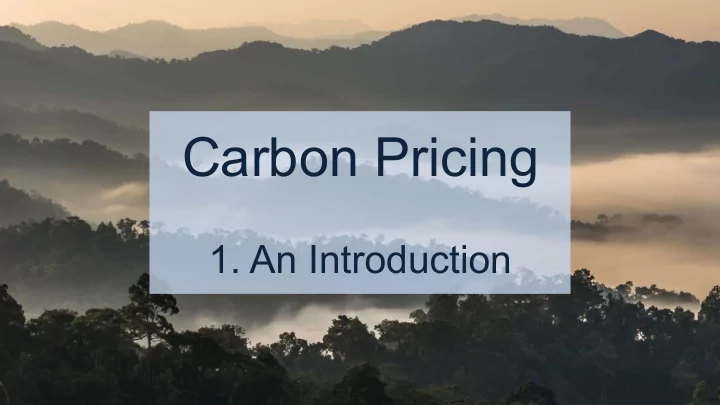

Carbon Pricing 1. An Introduction
Sources of emissions - such as power plants, vehicles, factories and homes - have to pay a price for each tonne of carbon dioxide (and sometimes other greenhouse gases) that they put into the atmosphere Tax or Emissions Trading System
Putting a price on emissions creates a direct financial incentive to reduce them
Gas Coal Approximately 50-60% reduction on switching from coal to gas CO 2 CO 2 Total cost increase may feed through to consumers
Source: World Bank State and Trends of Carbon Pricing 2017
Source: World Bank State and Trends of Carbon Pricing 2017
Some possible objections to carbon pricing • Reducing competitiveness? • Too expensive for poor households? • Just another way for governments to raise revenue? • Excludes other policy instruments? • Does not work in practice? • Commoditising nature?
Conclusions • Carbon pricing creates a financial incentive to reduce emissions • It is increasingly widespread around the world • It can be effective if prices are at adequate levels, but too often they are not • Careful design is needed
Recommend
More recommend